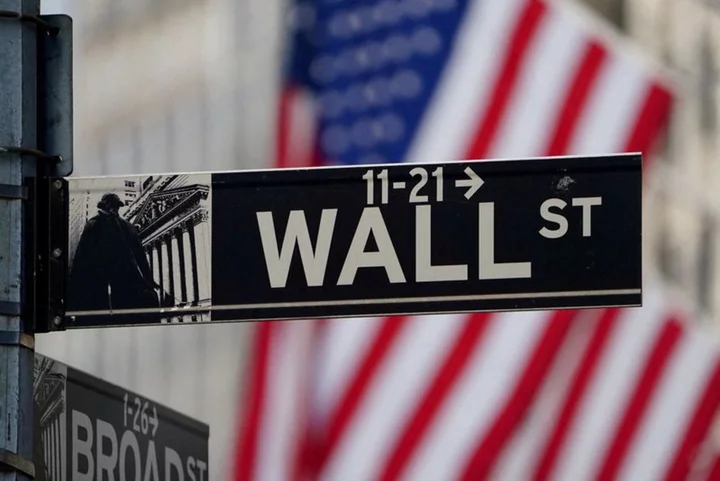By Mike Dolan
LONDON Even optimistic investors are now keen to avoid credit landmines among smaller firms as borrowing rates and debt servicing costs climb, and a U.S. tax twist may well compound the problem.
Blowout U.S. economic growth and this year' megacap gains clearly mask a stickier time for small businesses who employ about half of all American workers. That's amply reflected in public markets by the year-to-date drop and 13% underperformance of Russell 2000 small caps against the S&P500 - not to mention a 27% shortfall versus the Nasdaq 100.
Alongside staff shortages and high input costs, soaring borrowing rates for smaller cash-starved firms are the nub of the problem. While high-yield bond premia for sub-investment grade borrowers remain historically modest, many concerns centre around the explosive growth in private credit while leveraged buyouts of the private equity world are also in the crosshairs.
Asset managers are now watching default rates, loan amendments and bankruptcies like hawks to see signs of stress.
So far, remarkably, a doubling of 10-year benchmark Treasury yields in just 14 months to 16-year highs near 5% - and commensurate doubling of short-term business loan rates to close to 10% for the first time in 20 years - looked to have been taken on the chin.
Leveraged loan fund managers and private credit investors continue to claim elevated returns cover the risks and slowly rising default losses are manageable by active fund selection.
But Boston-based fund manager GMO warns that along with higher interest rates and inflation, worrying U.S. corporate tax changes from six years ago receive less attention.
And the potential impact on highly levered firms from the combination of all three ups the ante for small business and private markets in the event of a recession - however delayed.
TAXING SITUATION
Detailing multiple accounting hits to company balance sheets, investment and capital expenditure from structurally higher inflation, it twinned that with the resulting higher-for-longer real interest rate view that sees higher discounts on future earnings of inflated 'growth stock' valuations.
While it's well documented how damaging this has already been to the lucrative private equity model of cheaply funded leveraged buyouts and subsequent flotation of debt-stacked firms at exalted stock valuations, it's unlikely to get any better, GMO reckons.
Interest costs for these highly levered small firms have ballooned to more than 40% of earnings before interest and tax, or EBIT, - more than 10 percentage points higher over just two years, it estimated.
"If we are correct in suggesting that real interest rates will remain high, the situation is bound to get worse as old debt matures and refinancing needs become more widespread and more acute," GMO's quarterly letter to clients said.
But it added that a shift in tax rules from 2017 that only came into full effect last year increases the conundrum, as it caps interest tax deductibility at 30% of EBIT. That means effective tax rates could theoretically soar from a fixed 21% 'to infinity' depending on the scale of added interest burdens as a share of their earnings.
Another tax change from 2017 also ups the risk of bankruptcy for loss-making firms as it removed so-called 'carrybacks', where government used to rebate unprofitable firms for taxes paid in the past. Instead, only profitable businesses can now net out taxes owed with past losses.
"They can no longer get cash injections when going through periods of distress," GMO said, adding equity valuations and credit spreads need to reflect this.
"Negative cashflows pose a very real threat of bankruptcy, especially with the 2017 tax changes making the economy more procyclical," it concluded.
The upshot, as with so many investor recommendations, is to seek 'quality' firms and avoid leverage - or at least not add to it from here if you think interest rates are not coming down any time soon and recession hits eventually, even with a longer lag.
Societe Generale strategists too spotlight rising bankruptcies this year and how smallcaps' effective net interest costs are soaring relative to bigger listed stocks flattering aggregate U.S. indexes.
"Tighter credit conditions for small companies usually precede or accompany sliding profits, which in turn spells lower employment growth," wrote SocGen's long-time market bear Albert Edwards on Thursday.
"Post-pandemic labour shortages should not disguise the fact that smaller companies are being trampled underfoot – not by the Magnificent 7, but the 7 Fed Horseman of the Apocalypse."
Apocalypse or not, small may not be so beautiful for the time being at least. And the potential travails of small business may eventually shade the startling acceleration of U.S. growth recorded this week.
The opinions expressed here are those of the author, a columnist for Reuters.
(By Mike Dolan X: @reutersMikeD; Editing by Susan Fenton)

